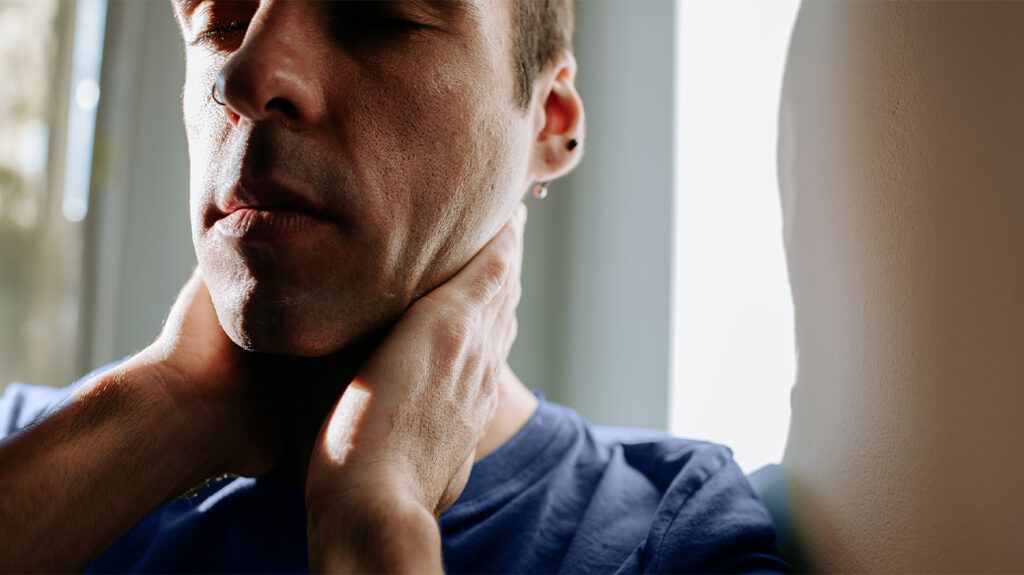Hepatitis B virus (HBV) reactivation may occur if someone has chronic HBV, prior exposure to HBV and is undergoing treatment, or a health condition that suppresses their immune system.
The hepatitis B virus (HBV) is a type of viral infection that a person can transmit through blood, semen, vaginal fluids, or saliva. HBV leads to hepatitis B, a type of inflammatory liver disease. A person can prevent contracting HBV by having the HBV vaccination.
If a person has chronic HBV or has received exposure to HBV, they may be at risk of a sudden increase in the amount of HBV in the cells. This is known as HBV reactivation. Typically, this may occur due to a weakening of the immune system.

Chronic HBV is when markers of active hepatitis B are present for
HBV can remain dormant in the liver for a long time. Even though the virus is inactive, certain factors, such as medications or other health conditions, can trigger the virus to reactivate. HBV reactivation can lead to a deterioration of liver function, acute liver failure, and potentially death.
To experience HBV reactivation, a person must have chronic HBV or prior exposure to HBV and little to no immunity to the virus. Usually, reactivation occurs due to an imbalance between the immune response and HBV replication.
The
It can also occur if a person has a problem with their immune system. For example, HBV reactivation can occur in individuals living with HIV. However, it is also possible for HBV reactivation to occur spontaneously.
A weakening of the immune system can prevent the body from managing HBV levels, causing a spike in the amount of virus in the body. Causes of HBV reactivation can include:
- immunosuppressive treatments for cancer, such as cytotoxic chemotherapy and immune checkpoint inhibitors
- immune system disorders such as type 1 diabetes, rheumatoid arthritis, and asthma
- organ or tissue transplantation
- direct-acting antiviral medications to treat hepatitis C
- corticosteroid medications
- immunosuppressive therapies for SARS-CoV-2
- coinfection with hepatitis A, hepatitis C, or hepatitis D
However, if a person does experience symptoms, they are typically similar to those of an initial HBV infection and
If a person has had prior exposure to HBV, the virus may be present in the liver but remain inactive.
A person can undergo a core antibody test to understand whether they may have had previous HBV exposure. The core antibody does not provide any protection against HBV. If it is present, this indicates a past HBV infection.
If a person has a positive HBV core antibody test, further testing is necessary to understand their HBV status. After receiving their results, individuals can consult a medical professional before undergoing immunosuppressive treatments.
When a person has the core antibody present, they may be approximately 40% to 70% more at risk of HBV reactivation when undergoing immunosuppressive treatment.
Chronic HBV or prior HBV exposure are the most important risk factors of HBV reactivation. Several other factors can increase the risk of HBV reactivation, which typically fall under three categories,
- Virological factors: These include having high levels of HBV DNA in the body, testing positive for the core antibody, inheriting an HBV genotype, and having other viral infections such as hepatitis A, hepatitis C, or hepatitis D.
- Host factors: A person may be more at risk of HBV reactivation if they are male, are of an older age, have a buildup of scar tissue in the liver, have a health condition that impairs the immune system, or have a health condition that requires immunosuppressive treatment.
- Immunosuppressive treatment: This can include any medication or therapy that affects the immune system, including chemotherapy, corticosteroids, and direct-acting antiviral medications.
If an individual is at risk of HBV reactivation, a healthcare professional
If an individual does experience HBV reactivation, a 2021 review notes that antiviral medications such as tenofovir or entecavir are the main treatment methods.
Hepatitis B virus (HBV) reactivation is when a person with chronic HBV or prior exposure to HBV experiences an increase in levels of this virus in the body. HBV reactivation can lead to a deterioration of liver function, acute liver failure, and potentially death.
It is possible for HBV reactivation to occur spontaneously. However, it is more common when a person undergoes immunosuppressive treatment or has a health condition that impairs the immune system.
HBV reactivation may not present any symptoms. However, if a person does experience HBV reactivation, symptoms can include abdominal pain, nausea, vomiting, and jaundice.
Risk factors of someone experiencing HBV reactivation can include having an existing health condition that impairs the immune system, undergoing immunosuppressive treatment, being male, and being of an older age.
If a person is at risk of HBV reactivation, they may need to undergo regular screening and take antiviral medications before undergoing immunosuppressive treatment.
If someone experiences HBV reactivation, a healthcare professional may prescribe antiviral treatment.
